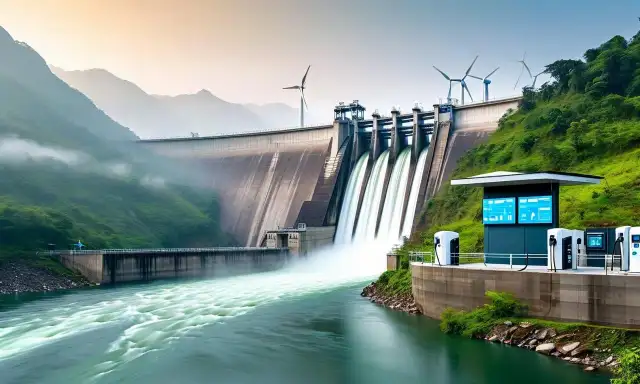India has initiated construction on the Dibang Multipurpose Project in Arunachal Pradesh, which will be the country’s tallest dam at 278 meters. State-run NHPC Limited has floated a global tender worth Rs 17,069 crore to build the main dam, expected to be completed by 2032. The project is designed to generate power and act as a buffer against sudden water releases from China’s mega dam on the Yarlung Tsangpo river in Tibet.

Power and Flood Moderation Objectives
The Dibang Multipurpose Project will generate approximately 11,223 million units of electricity annually and provide Arunachal Pradesh with Rs 700 crore of free power each year. The dam will also create a flood moderation capacity of 1,282 million cubic meters by maintaining reservoir levels below the Full Reservoir Level during monsoon seasons.
Geographical and Hydrological Importance
The Dibang River, a major tributary of the Brahmaputra, contributes about 7% of its annual runoff at Pandu. Originating from the southern Himalayas near the Tibet border, the Dibang flows 195 km through Arunachal Pradesh before merging with the Lohit River near Sadiya in Assam. The Siang River, which originates as the Yarlung Tsangpo in Tibet, is a key headstream of the Dibang and ultimately forms part of the Brahmaputra system.
Concerns Over China’s Mega Dam
India’s urgency follows reports that China has begun building the Motuo Hydropower Station, projected to be the world’s largest dam. This dam on the Yarlung Tsangpo could allow China to control or divert water flowing into India and Bangladesh. Arunachal Pradesh Chief Minister Pema Khandu warned that sudden water releases could flood Indian territory or significantly reduce flows in the Siang and Brahmaputra.
Political and Diplomatic Context
The Dibang project comes amid a thaw in India-China relations following the 2020 Galwan clash. Prime Minister Narendra Modi recently met Chinese President Xi Jinping at the SCO Summit, but China’s dam continues to be a strategic concern for India. The Dibang dam will serve as insurance against any potential disruptions or unilateral actions downstream.
Project Oversight and Commitment
CM Khandu and NHPC Chairman Sanjay Kumar Singh have inspected preparatory works at the site. The government has committed to completing the dam by 2032, emphasizing both energy security and strategic readiness.
Investment and Economic Impact
The total cost of the Dibang Multipurpose Project is Rs 31,875 crore. Beyond power generation and flood control, the project is expected to strengthen Arunachal Pradesh’s role in national energy security while providing substantial economic benefits to the state.
